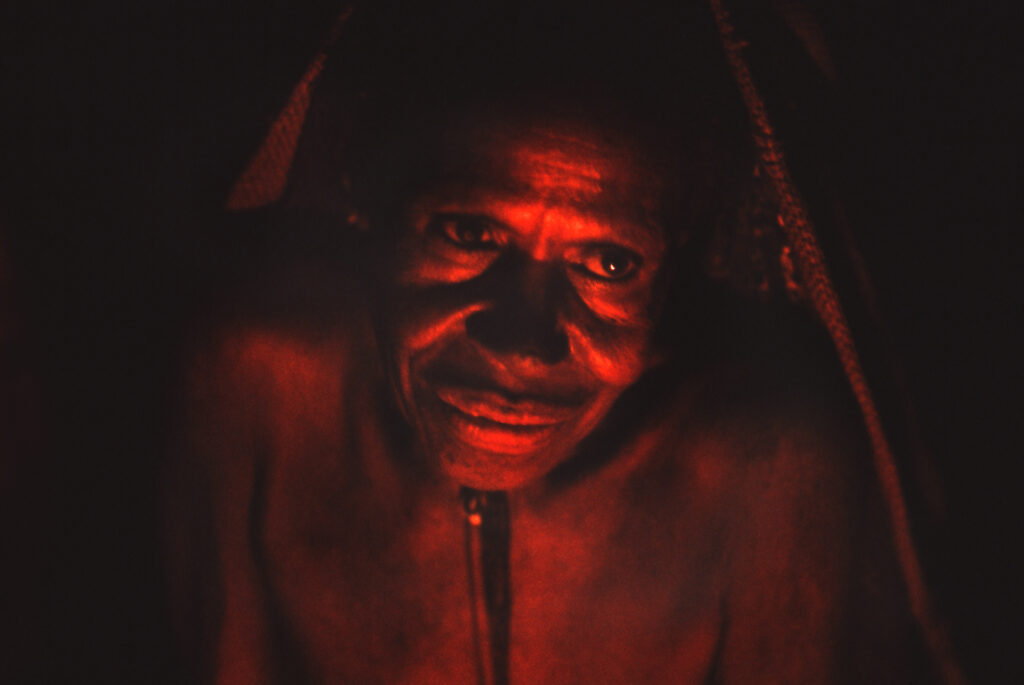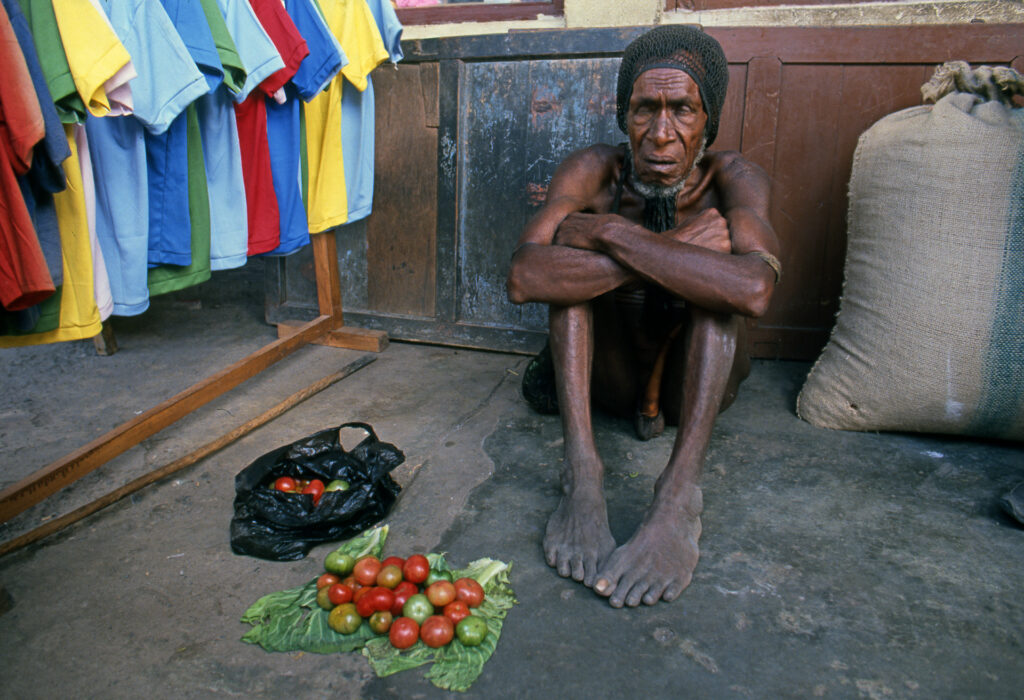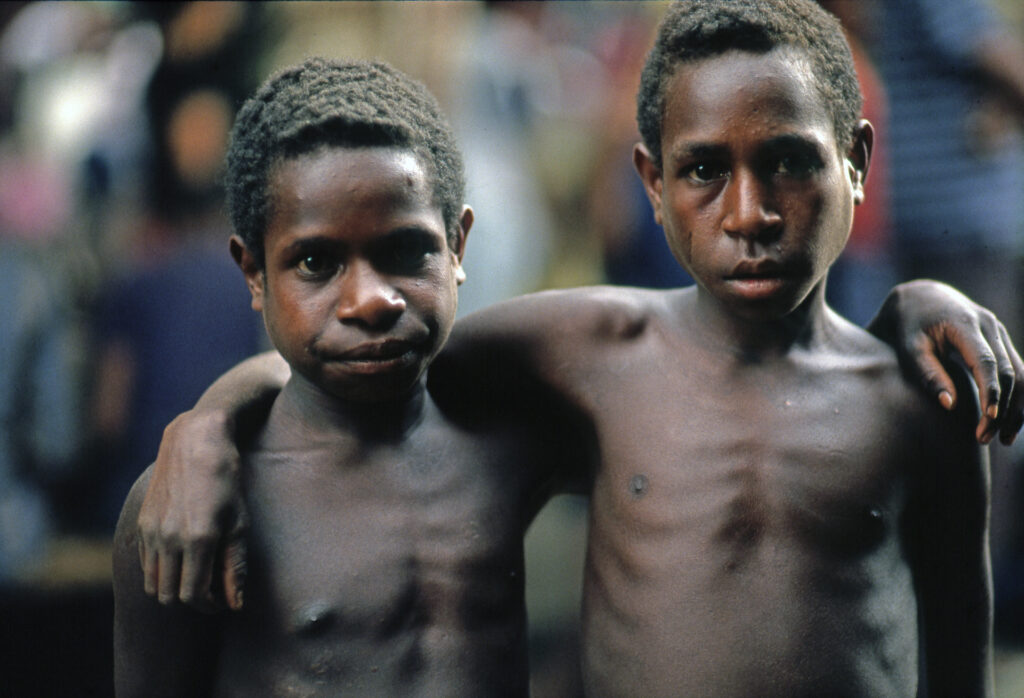Finding Salt in Brine Pools
A group of Dani women chew palm wood heart into a pulp that they use to soak up the brine from ponds, their source of salt for thousands of years. They carry the spongy wet mass back to their village in palm leaves, where they burn it, leaving ashes and salt. The salt is a big trading item between these highlanders and the coastal people.
The people of the Asmat, Yali, Dani, KimYal/Goliat, Obini, Tokiat and Shetak regions and the Wickbone of the Seng River, and the many other aboriginal cultures living in West Papua, epitomize the communion between man and nature. Who they are, where they are, and what they do, are inseparable. They live with a rare sensitivity to nature – recognizing that they are part of something much larger than themselves.
West Papua’s aboriginal people are now being confronted with an approach to resources and a culture of gratuitous production and consumption quite at odds with their own history, culture and experience. Not far from here, in the highlands belonging to the Amungme and Komoro people, is the world’s most profitable mine. The vast gold and copper open pit mining operation, a highly restricted area secured by the Indonesian military, which accounts for roughly half of West Papua’s GNP. It also dumps over 100,00 tons of toxic tailings into the Ajkwa River every day. It is owned by Freeport McMoRan of New Orleans, and RTZ of London, and of the 7,500 company employees less than 300 Papuans are employed at the mine.
While they lose their land rights and self-determination, the highland people have access to none of the advantages that are portrayed by the purveyors of globalization and “trickle down” economics. Almost nothing is trickling down – money, health services or education. The infant mortality rates, disease, and general health conditions of all of West Papua’s aboriginal people is appalling. And in the face of environmental and cultural disintegration, company plans persist for acquiring more land, more mines, and roads leading to deep-water ports.
Thousands of Papuans continue to be displaced through expropriation and the Indonesian Government’s transmigration policy, which is making the Papuans a minority in their own country.
The fate of West Papua’s aboriginal population depends on how well they are respected by Indonesia and the rest of the world. Respect means to “look over/again”. This requires looking at the world’s aboriginal cultures differently from the way the colonialists did and continue to do. It means not confusing democratization with corporatization. It requires celebrating who they are and what they can offer, rather than what can be taken of their land, labour and resources.
For development to be truly sustainable, common ground has to be found between economic progress and ecological and cultural integrity. The ecological imperative is completely disregarded by the mining operators, whose narrow, selfish, and fear-based vision is reptilian by comparison, and not unlike the views that pervade the Pentagon, produce landmines, or use food and children as weapons of war. The Papuans live their lives with the understanding that everything comes from the earth, and that they belong to the earth more than it belongs to them. We, in the so-called “civilized” world, need their vision far more than their oil, copper, gold, and timber.
We cannot damage what we are dependent upon without damaging ourselves. There is no “us and them”, “we and our environment”. Only us.
Further Reading:






